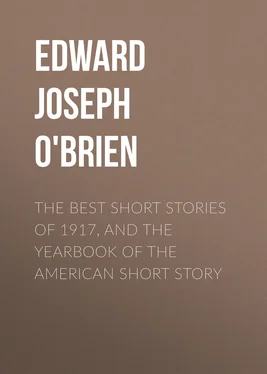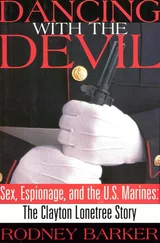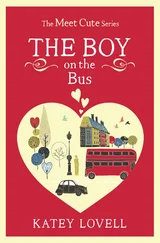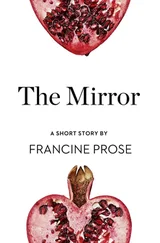Edward O'Brien - The Best Short Stories of 1917, and the Yearbook of the American Short Story
Здесь есть возможность читать онлайн «Edward O'Brien - The Best Short Stories of 1917, and the Yearbook of the American Short Story» — ознакомительный отрывок электронной книги совершенно бесплатно, а после прочтения отрывка купить полную версию. В некоторых случаях можно слушать аудио, скачать через торрент в формате fb2 и присутствует краткое содержание. Издательство: Иностранный паблик, Жанр: foreign_prose, literature_20, foreign_antique, на английском языке. Описание произведения, (предисловие) а так же отзывы посетителей доступны на портале библиотеки ЛибКат.
- Название:The Best Short Stories of 1917, and the Yearbook of the American Short Story
- Автор:
- Издательство:Иностранный паблик
- Жанр:
- Год:неизвестен
- ISBN:нет данных
- Рейтинг книги:3 / 5. Голосов: 1
-
Избранное:Добавить в избранное
- Отзывы:
-
Ваша оценка:
- 60
- 1
- 2
- 3
- 4
- 5
The Best Short Stories of 1917, and the Yearbook of the American Short Story: краткое содержание, описание и аннотация
Предлагаем к чтению аннотацию, описание, краткое содержание или предисловие (зависит от того, что написал сам автор книги «The Best Short Stories of 1917, and the Yearbook of the American Short Story»). Если вы не нашли необходимую информацию о книге — напишите в комментариях, мы постараемся отыскать её.
The Best Short Stories of 1917, and the Yearbook of the American Short Story — читать онлайн ознакомительный отрывок
Ниже представлен текст книги, разбитый по страницам. Система сохранения места последней прочитанной страницы, позволяет с удобством читать онлайн бесплатно книгу «The Best Short Stories of 1917, and the Yearbook of the American Short Story», без необходимости каждый раз заново искать на чём Вы остановились. Поставьте закладку, и сможете в любой момент перейти на страницу, на которой закончили чтение.
Интервал:
Закладка:
The ceremony of deducting this sum took place at the Planters' Bank, whither the two had journeyed in company from the courthouse. Having, with the aid of the paying teller, instructed O'Day in the technical details requisite to the drawing of personal checks, Judge Priest went home and had his bag packed, and left for Reelfoot Lake to spend a week fishing. As a consequence he missed the remaining two events, following immediately thereafter.
The circus was no great shakes of a circus; no grand, glittering, gorgeous, glorious pageant of education and entertainment, traveling on its own special trains; no vast tented city of world's wonders and world's champions, heralded for weeks and weeks in advance of its coming by dead walls emblazoned with the finest examples of the lithographer's art, and by half-page advertisements in the Daily Evening News . On the contrary, it was a shabby little wagon show, which, coming overland on short notice, rolled into town under horse power, and set up its ragged and dusty canvases on the vacant lot across from Yeiser's drug store.
Compared with the street parade of any of its great and famous rivals, the street parade of this circus was a meager and disappointing thing. Why, there was only one elephant, a dwarfish and debilitated-looking creature, worn mangy and slick on its various angles, like the cover of an old-fashioned haircloth trunk; and obviously most of the closed cages were weather-beaten stake wagons in disguise. Nevertheless, there was a sizable turnout of people for the afternoon performance. After all, a circus was a circus.
Moreover, this particular circus was marked at the afternoon performance by happenings of a nature most decidedly unusual. At one o'clock the doors were opened; at one-ten the eyes of the proprietor were made glad and his heart was uplifted within him by the sight of a strange procession, drawing nearer and nearer across the scuffed turf of the Common, and heading in the direction of the red ticket wagon.
At the head of the procession marched Peep O'Day—only, of course, the proprietor didn't know it was Peep O'Day—a queer figure in his rumpled black clothes and his red-topped brass-toed boots, and with one hand holding fast to the string of a captive toy balloon. Behind him, in an uneven jostling formation, followed many small boys and some small girls. A census of the ranks would have developed that here were included practically all the juvenile white population who otherwise, through a lack of funds, would have been denied the opportunity to patronize this circus or, in fact, any circus.
Each member of the joyous company was likewise the bearer of a toy balloon—red, yellow, blue, green, or purple, as the case might be. Over the line of heads the taut rubbery globes rode on their tethers, nodding and twisting like so many big iridescent bubbles; and half a block away, at the edge of the lot, a balloon vender, whose entire stock had been disposed of in one splendid transaction, now stood, empty-handed but full-pocketed, marveling at the stroke of luck that enabled him to take an afternoon off and rest his voice.
Out of a seemingly bottomless exchequer Peep O'Day bought tickets of admission for all. But this was only the beginning. Once inside the tent he procured accommodations in the reserved-seat section for himself and those who accompanied him. From such superior points of vantage the whole crew of them witnessed the performance, from the thrilling grand entry, with spangled ladies and gentlemen riding two by two on broad-backed steeds, to the tumbling bout introducing the full strength of the company, which came at the end.
They munched fresh-roasted peanuts and balls of sugar-coated popcorn, slightly rancid, until they munched no longer with zest but merely mechanically. They drank pink lemonade to an extent that threatened absolute depletion of the fluid contents of both barrels in the refreshment stand out in the menagerie tent. They whooped their unbridled approval when the wild Indian chief, after shooting down a stuffed coon with a bow and arrow from somewhere up near the top of the center pole while balancing himself jauntily erect upon the haunches of a coursing white charger, suddenly flung off his feathered headdress, his wig and his fringed leather garments, and revealed himself in pink fleshings as the principal bareback rider.
They screamed in a chorus of delight when the funny old clown, who had been forcibly deprived of three tin flutes in rapid succession, now produced yet a fourth from the seemingly inexhaustible depths of his baggy white pants—a flute with a string and a bent pin attached to it—and, secretly affixing the pin in the tail of the cross ringmaster's coat, was thereafter enabled to toot sharp shrill blasts at frequent intervals, much to the chagrin of the ringmaster, who seemed utterly unable to discover the whereabouts of the instrument dangling behind him.
But no one among them whooped louder or laughed longer than their elderly and bewhiskered friend, who sat among them, paying the bills. As his guests they stayed for the concert; and, following this, they patronized the side show in a body. They had been almost the first upon the scene; assuredly they were the last of the audience to quit it.
Indeed, before they trailed their confrère away from the spot the sun was nearly down; and at scores of supper tables all over town the tale of poor old Peep O'Day's latest exhibition of freakishness was being retailed, with elaborations, to interested auditors. Estimates of the sum probably expended by him in this crowning extravagance ranged well up into the hundreds of dollars.
As for the object of these speculations, he was destined not to eat any supper at all that night. Something happened that so upset him as to make him forget the meal altogether. It began to happen when he reached the modest home of P. Gafford, adjoining the Gafford stables, on Locust Street, and found sitting on the lower-most step of the porch a young man of untidy and unshaved aspect, who hailed him affectionately as Uncle Paul, and who showed deep annoyance and acute distress upon being rebuffed with chill words.
It is possible that the strain of serving a three-months' sentence, on the technical charge of vagrancy, in a workhouse somewhere in Indiana, had affected the young man's nerves. His ankle bones still ached where the ball and chain had been hitched; on his palms the blisters induced by the uncongenial use of a sledge hammer on a rock pile had hardly as yet turned to calluses. So it is only fair to presume that his nervous system felt the stress of his recent confining experiences also.
Almost tearfully he pleaded with Peep O'Day to remember the ties of blood that bound them; repeatedly he pointed out that he was the only known kinsman of the other in all the world, and, therefore, had more reason than any other living being to expect kindness and generosity at his uncle's hands. He spoke socialistically of the advisability of an equal division; failing to make any impression here he mentioned the subject of a loan—at first hopefully, but finally despairingly.
When he was done Peep O'Day, in a perfectly colorless and unsympathetic voice, bade him good-by—not good-night but good-by! And, going inside the house, he closed the door behind him, leaving his newly returned relative outside and quite alone.
At this the young man uttered violent language; but, since there was nobody present to hear him, it is likely he found small satisfaction in his profanity, rich though it may have been in metaphor and variety. So presently he betook himself off, going straight to the office in Legal Row of H. B. Sublette, Attorney-at-law.
From the circumstance that he found Mr. Sublette in, though it was long past that gentleman's office hours, and, moreover, found Mr. Sublette waiting in an expectant and attentive attitude, it might have been adduced by one skilled in the trick of putting two and two together that the pair of them had reached a prior understanding sometime during the day; and that the visit of the young man to the Gafford home and his speeches there had all been parts of a scheme planned out at a prior conference.
Читать дальшеИнтервал:
Закладка:
Похожие книги на «The Best Short Stories of 1917, and the Yearbook of the American Short Story»
Представляем Вашему вниманию похожие книги на «The Best Short Stories of 1917, and the Yearbook of the American Short Story» списком для выбора. Мы отобрали схожую по названию и смыслу литературу в надежде предоставить читателям больше вариантов отыскать новые, интересные, ещё непрочитанные произведения.
Обсуждение, отзывы о книге «The Best Short Stories of 1917, and the Yearbook of the American Short Story» и просто собственные мнения читателей. Оставьте ваши комментарии, напишите, что Вы думаете о произведении, его смысле или главных героях. Укажите что конкретно понравилось, а что нет, и почему Вы так считаете.












